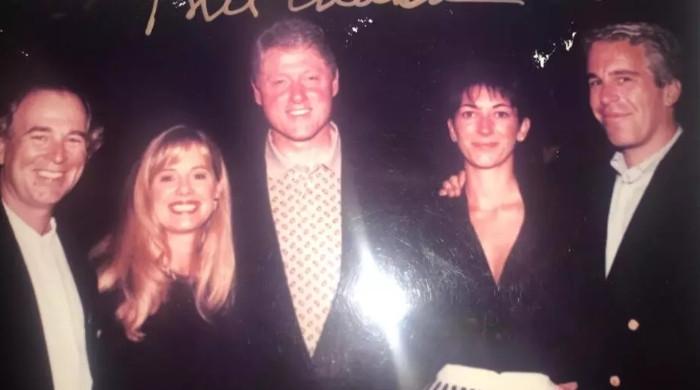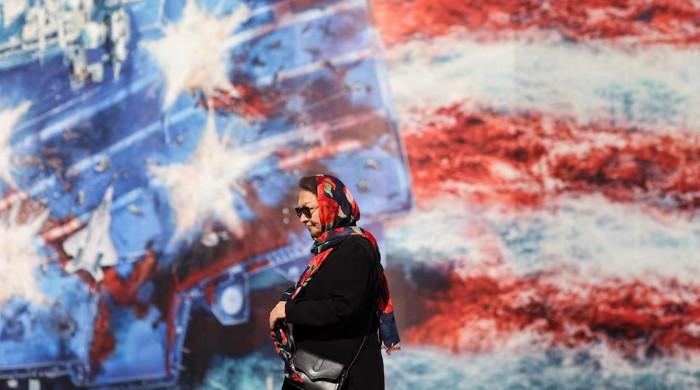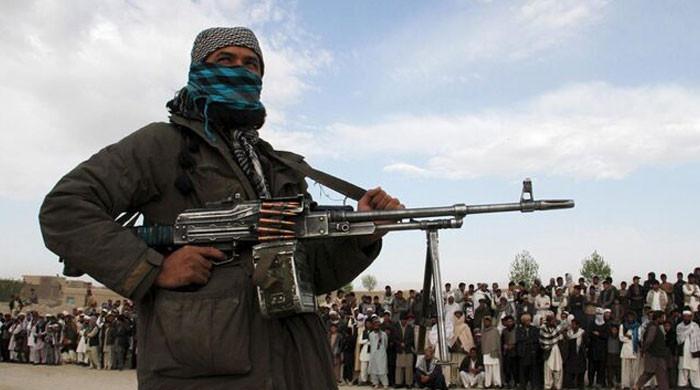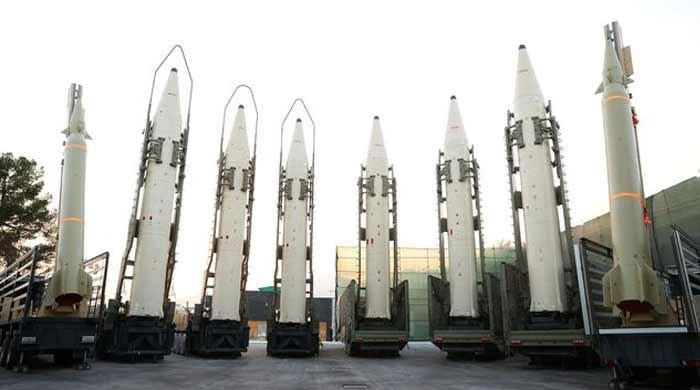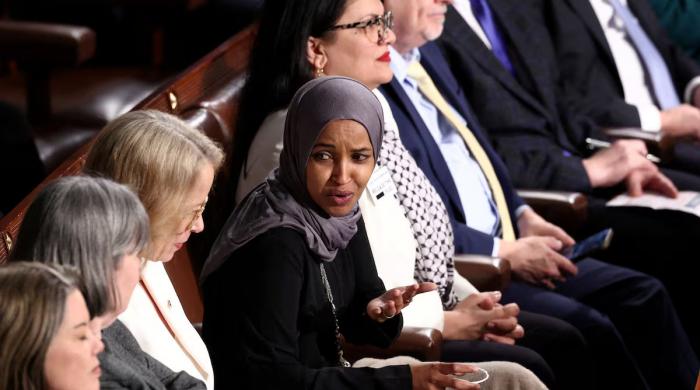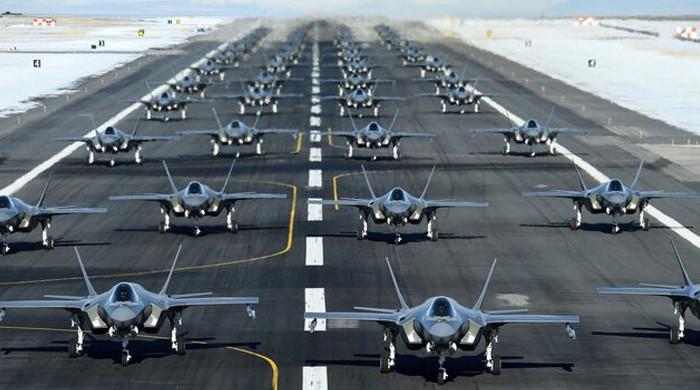UK media 'misrepresents' pro-Palestinian voices as antisemitic, violent or pro-Hamas
Right-wing news channels and right-wing British publications were at the forefront of misrepresenting pro-Palestinian protestors as antisemitic
March 05, 2024
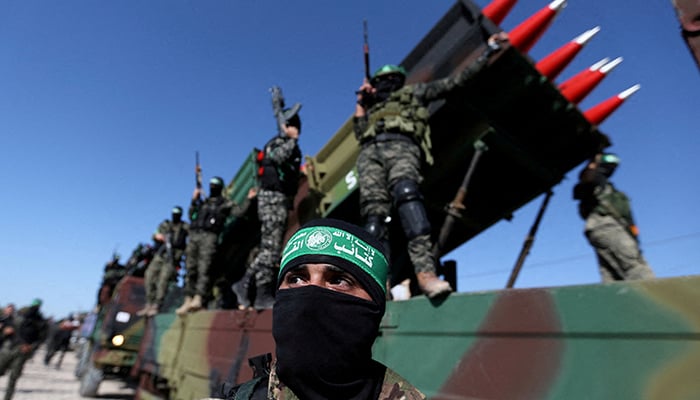
LONDON: A new report has revealed that the mainstream UK media was heavily biased towards Israel and against Palestinians while attacking Muslims and non-Muslim supporters of Palestine's freedom, following the brutal October 7 attacks and Israel’s ensuing attacks on Gaza.
Right-wing news channels and right-wing British publications were at the forefront of misrepresenting pro-Palestinian protestors as antisemitic, violent, or pro-Hamas, according to a report released by the Centre for Media Monitoring (CfMM), an affiliate of the Muslim Council of Britain (MCB).
In 150 pages, the report explains that emotive language in UK print and electronic media describes Israelis as victims of attacks 11 times more than Palestinians; most TV channels overwhelmingly promote "Israel's right" to defend itself, overshadowing Palestinian rights by a ratio of 5 to 1; in broadcast TV, Israeli perspectives were referenced almost three times more than Palestinian ones; in online news, it was almost twice as much; 76% of online articles frame the conflict as an "Israel-Hamas war," while only 24% mention "Palestine/Palestinian," indicating a lack of context; Pro-Palestinian voices face misrepresentation and vilification by media outlets, perpetuating harmful stereotypes; and right wing news channels and right-wing British publications were at the forefront of misrepresenting pro-Palestinian protestors as antisemitic, violent or pro Hamas.
The report — 'Media Bias Gaza 2023-24' — critically examines media coverage surrounding Israel's war on Gaza in the first month after October 7 (7 October-7 November 2023), highlighting significant biases and distortions in mainstream media outlets including the extent to which core facts were presented.
The CfMM said the report scrutinised a vast array of data analysing 176,627 television clips from over 13 broadcasters and 25,515 news articles from over 28 UK online media websites.
It said the data was analysed for the framing of events, language utilisation, and the representation of Palestinian voices in mainstream media. The report aimed to assess the extent of bias and distortion in the portrayal of the conflict by various media outlets.
The report said there were 361 TV news clips where the term “beheaded” and “babies” were found; almost 50% of these were on the two right-wing British channels Talk TV (27%) and GB News (20%) with Sky News accounting for (14%) and of the 361 mentions there were only 52 which showed any sufficient challenge, rebuttal or questioning of the claims. The report said these were all unverified claims.
The report revealed that a significant majority of online articles framed the conflict as an "Israel-Hamas war," while only a small percentage mentioned "Palestine/Palestinian." This skewed framing perpetuated a narrative that lacked crucial context and failed to provide a comprehensive understanding of the conflict, said the report.
It said television broadcasts overwhelmingly favoured "Israel's right" to defend itself, effectively overshadowing Palestinian rights by a ratio of 5 to 1. This biased framing contributed to a distorted portrayal of the conflict, reinforcing narratives that prioritised Israeli perspectives over Palestinian voices.
CfMM also found that TV reporting of Israeli perspectives was referenced almost three times more (4,311) than Palestinian ones (1,598). In online news it was almost twice as much (2,983 v 1,737).
The analysis of language usage in media coverage highlighted a concerning trend where emotive language disproportionately highlighted Israeli suffering, while downplaying Palestinian casualties.
This disparity in language usage further perpetuated a narrative that undermined the plight of Palestinians and reinforced biased perspectives, according to the report.
The report said pro-Palestinian voices faced misrepresentation and vilification by media outlets, with allegations of antisemitism and terrorism weaponised to discredit legitimate advocacy efforts. This systematic misrepresentation perpetuated harmful stereotypes and undermined the credibility of pro-Palestine activists. For example, GB News and Talk TV accounted for 42% of total references to protestors as being ‘pro-Hamas’ despite the protests highlighting the plight of Palestinians and calling for a ceasefire.
The report also examined the intersection between the crisis and Islamophobia, especially as Islamophobic hate crime increased by 335% since 7 October. The report found that many prominent media personalities, senior editors and journalists regurgitated Islamophobic tropes about Muslim belief and identity, with the aim of undermining the Palestinian cause and/or Palestinian advocates.
The report also found how some media outlets and commentators have framed the conflict as being between Muslims and Jews. Muslim opposition to Israel has been framed as anti-Semitic by some publications and commentators. While there has been a shocking rise in both anti-Semitic and Islamophobic hate crimes, the report tracks a hierarchy of racism when reporting on anti-Semitism and Islamophobia.
Writing in the report, lead author Faisal Hanif said: “In the main, Palestinians should be reported on as human beings with full unalienable rights as enjoyed by all peoples. This also necessitates how those rights have been curtailed in a forever war against them that has its origins many decades before 7 October 2023.”
Rizwana Hamid, Director of the Centre for Media Monitoring said: “As media organisations navigate the complexities of the conflict, it is imperative to uphold principles of fairness, accuracy, and inclusivity, ensuring that all voices are heard, and all perspectives are represented.”
Veteran journalist and author Peter Oborne said: “Some of the misreporting highlighted in this report stems from ignorance rather than prejudice… It also notes the counter-intuitive and highly revealing paradox that mainstream Israeli journalists have been more ready to tell the truth about the war in Gaza than their British equivalents. Israeli victims of Palestinian violence are “killed” while Palestinians mysteriously “die’. Terms such as “atrocities”, “slaughter” and “massacre” are overwhelmingly deployed in connection with attacks against Israelis rather than Palestinians.”
The report refers to a University of Cambridge study that said the mainstream media reporting about Muslim communities is contributing to an atmosphere of rising hostility towards Muslims in Britain. Sir Alan Moses, the former chair of the newspaper regulator IPSO (Independent Press Standards Organisation) said the portrayal of Islam and Muslims in the British press had been the “most difficult issue” facing the watchdog during his chairmanship and that Muslims are “written about in a way that [newspapers] would simply not write about Jews or Roman Catholics”.





